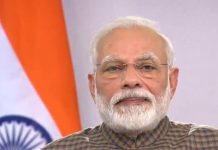Jyotsna Yagnik, who delivered the historic Naroda Patiya judgement, sentencing Babu Bajrangi and Maya Kodnani to life, is no stranger to difficult cases, says Ajachi Chakrabarti

The Naroda Patiya judgement has rightly been lauded as a landmark in the long road to providing justice for the victims of the 2002 Gujarat riots. The 1,969-page verdict, holding former BJP ministers Maya Kodnani, Babu Bajrangi and 30 others guilty for the 28 February 2002 massacre in Gujarat that saw 97 people mercilessly killed, has been praised by lawyers and activists alike.
At the centre of all this is a 58-year-old woman, described as a “very upright Hindu”, who spent nearly three years hearing the shocking testimonies of those who had witnessed the wanton violence. Special judge Jyotsna Yagnik is no stranger to high-profile cases involving violence. In 2008, she sentenced Delhi businessman Sajal Jain and four of his friends to life imprisonment for gang raping Jain’s 24-year-old mistress Bijal Joshi on New Year’s Eve in 2003. Joshi had killed herself, naming her rapists in her suicide note. The macabre case involved coercion of witnesses and destruction of vital physical evidence by Jain’s influential family, but Yagnik held firm, ignoring defendants’ pleas that the accused were young and educated. “Money cannot lessen the quantum of sentence,” she had said.
It is this ability to see through false sentiments and tampered evidences that has held her in good stead in the Naroda Patiya case. “Yagnik managed to cull out the best evidence from a weak prosecution,” says advocate Mukul Sinha, one of the petitioners in the case. “It should be noted that from the very beginning of the investigations, the CID made every effort to sabotage the case. When the SIT was appointed in 2009, it made very slow progress, but she managed to take into account the best evidence.”
After the Bijal Joshi case, Yagnik was once again under the spotlight when she was one of three special judges who heard the ISI conspiracy case, filed in 2003, for a Prevention of Terrorism Act (POTA) court. In 2010, she sentenced 18 of the 44 accused to 10 years imprisonment, three to nine years and one to three years in jail, for illegally crossing into Pakistan for training to organise terror attacks in India to avenge the Gujarat riots. The case was notable in that underworld don Dawood Ibrahim and his aide Chhota Shakeel were among 36 people declared absconding in the case.
Arguably the Naroda Patiya judgement was the first time in India that the jail terms for different offences were made non-concurrent, while Babu Bajrangi was sentenced to life without remission after 14 years. Sinha describes the judgement as sending a signal that she was convinced of the cruelty of the heinous crime. “The language of the judgement and the sentencing show that she was determined to deliver justice to the victims,” he says. So much so, the judge’s decision not to award the death penalty is not being seen as a lenient move. “Even though the death penalty was not given, the judgement is absolutely unambiguous in its purpose,” says Sinha. “The correct message has been sent out to the higher judiciary.”
Yagnik’s judgement weighed the arguments for and against the death penalty, before concluding that with 139 countries having abolished it by 2009, there was a “momentum of general suspension of capital punishment throughout the world,” and that “the progressive society restricts the use of the death penalty… Use of death penalty undermines human dignity.” This opinion is consistent with her career, in which she has fought for human rights through the Legal Aid and Human Rights Centre.
Anand Yagnik, a prominent advocate in the state describes her as having “remained very bold and [possessing] the courage to speak the truth.” A student of judge at the Gujarat Law Society, he says, “She cannot be commanded by the State. You can win her by logical arguments, but never by exerting pressure on her. She is intellectually sound and balanced between her heart and mind. Emotion does not play a part in her judgements.”











